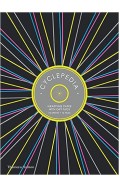Cultural Passions: Fans, Aesthetes and Tarot Readers
By: Elizabeth Wilson
-
Rs 2,885.75
- Rs 3,395.00
- 15%
You save Rs 509.25.
Due to constant currency fluctuation, prices are subject to change with or without notice.
Elizabeth Wilson is one of our most radical cultural critics. In "Cultural Passions" she transcends the division between 'high' and 'low' culture, exploring the emotional commitment people bring to the books, performances, objects and rituals in which they find meaning and challenging an enduring suspicion of the pleasure of the aesthetic. Ranging from Marcel Proust to tarot readings, from urban planning to interiors, Elizabeth Wilson investigates an underlying Puritanism in critical commentary on matters as wide ranging as Roger Federer and C S Lewis, Surrealism and fashion and the relationship of religion to fan culture. She questions why pleasure appears suspect, even as consumer society incites it and turns life into entertainment. She questions why there is such fear of elitism when at the same time the fans of mass culture are held in contempt. Subverting conventional views, her oblique point of view provides startling insights on both familiar and marginal cultural experiences.
| Book | |
| What's in the Box? | 1 x Cultural Passions: Fans, Aesthetes and Tarot Readers |
Elizabeth Wilson is one of our most radical cultural critics. In "Cultural Passions" she transcends the division between 'high' and 'low' culture, exploring the emotional commitment people bring to the books, performances, objects and rituals in which they find meaning and challenging an enduring suspicion of the pleasure of the aesthetic. Ranging from Marcel Proust to tarot readings, from urban planning to interiors, Elizabeth Wilson investigates an underlying Puritanism in critical commentary on matters as wide ranging as Roger Federer and C S Lewis, Surrealism and fashion and the relationship of religion to fan culture. She questions why pleasure appears suspect, even as consumer society incites it and turns life into entertainment. She questions why there is such fear of elitism when at the same time the fans of mass culture are held in contempt. Subverting conventional views, her oblique point of view provides startling insights on both familiar and marginal cultural experiences.
Cultural Passions: Fans, Aesthetes and Tarot Readers
By: Elizabeth Wilson
Rs 2,885.75 Rs 3,395.00 Ex Tax :Rs 2,885.75
Zubin Mehta: A Musical Journey (An Authorized Biography)
By: VOID - Bakhtiar K. Dadabhoy
Rs 892.50 Rs 1,050.00 Ex Tax :Rs 892.50
Modern Tarot Connecting with Your Higher Self through the Wisdom of the Cards
By: Michelle Zink
Rs 2,205.75 Rs 2,595.00 Ex Tax :Rs 2,205.75
Maybe You Should Talk to Someone - The Heartfelt, Funny Memoir by a New York Times Bestselling Therapist
By: Lori Gottlieb
Rs 2,515.50 Rs 2,795.00 Ex Tax :Rs 2,515.50
The Wild Unknown Tarot Deck and Guidebook (Official Keepsake Box Set)
By: Kim Krans
Rs 5,935.50 Rs 6,595.00 Ex Tax :Rs 5,935.50
The Origins of Political Order From Prehuman Times to the French RevolutioN
By: Francis Fukuyama
Rs 4,045.50 Rs 4,495.00 Ex Tax :Rs 4,045.50
Modern Tarot Connecting with Your Higher Self through the Wisdom of the Cards
By: Michelle Zink
Rs 2,205.75 Rs 2,595.00 Ex Tax :Rs 2,205.75
Maybe You Should Talk to Someone - The Heartfelt, Funny Memoir by a New York Times Bestselling Therapist
By: Lori Gottlieb
Rs 2,515.50 Rs 2,795.00 Ex Tax :Rs 2,515.50
The Wild Unknown Tarot Deck and Guidebook (Official Keepsake Box Set)
By: Kim Krans
Rs 5,935.50 Rs 6,595.00 Ex Tax :Rs 5,935.50
The Idle Stance of the Tippler Pigeon
By: Safinah Danish Elahi
Rs 1,705.50 Rs 1,895.00 Ex Tax :Rs 1,705.50
How the Light Gets In - (a Chief Inspector Gamache Mystery Book 9)
By: Louise Penny
Rs 2,065.50 Rs 2,295.00 Ex Tax :Rs 2,065.50
The Contours of American History
By: William Appleman Williams
Rs 7,645.75 Rs 8,995.00 Ex Tax :Rs 7,645.75
Wash Your Fins, Baby Shark! Doo Doo Doo Doo Doo Doo (BB)
By: John John Bajet
Rs 1,525.75 Rs 1,795.00 Ex Tax :Rs 1,525.75
Murdon Ki Sarai maut Ka Taaqub Book 8
By: Muhammad Saleem ur Rehman
Rs 169.15 Rs 199.00 Ex Tax :Rs 169.15
3S Translation of the Holy Quran (between the lines with short footnotes)
By: Idara Tarjuman ul Quran
Rs 3,595.50 Rs 3,995.00 Ex Tax :Rs 3,595.50
Untitled: The long-awaited memoir of legendary Lionel Richie
By: Lionel Richie
Rs 3,865.50 Rs 4,295.00 Ex Tax :Rs 3,865.50
Shadowcaster: 2 (Shattered Realms, 2)
By: Cinda Williams Chima
Rs 1,015.75 Rs 1,195.00 Ex Tax :Rs 1,015.75
My Hero Academia Volume 4: The Boy Born with Everything
By: Kohei Horikoshi
Rs 2,375.75 Rs 2,795.00 Ex Tax :Rs 2,375.75
Damage: INSPIRATION FOR THE NETFLIX SERIES OBSESSION
By: Josephine Hart
Rs 2,245.50 Rs 2,495.00 Ex Tax :Rs 2,245.50
Last Resort - A New York Times Editor's Pick
By: Andrew Lipstein
Rs 2,245.50 Rs 2,495.00 Ex Tax :Rs 2,245.50
The Saad Truth about Happiness - 8 Secrets for Leading the Good Life
By: Gad Saad
Rs 5,605.75 Rs 6,595.00 Ex Tax :Rs 5,605.75
One Bullet Away - The Making of a Marine Officer
By: Nathaniel Fick
Rs 2,515.50 Rs 2,795.00 Ex Tax :Rs 2,515.50
The Lost Lover Book The Wild Isle Series 3
By: Karen Swan
Rs 3,415.50 Rs 3,795.00 Ex Tax :Rs 3,415.50
The Width of the World (Vega Jane) - Paperback
By: David Baldacci
Rs 930.75 Rs 1,095.00 Ex Tax :Rs 930.75
Classic Collection Robinson Crusoe (Book Depot Only)
By: Saviour Pirotta
Rs 930.75 Rs 1,095.00 Ex Tax :Rs 930.75
My First Book of Colours: 1 (Scholastic Early Learners)
By: Scholastic Inc
Rs 1,270.75 Rs 1,495.00 Ex Tax :Rs 1,270.75
Zubin Mehta: A Musical Journey (An Authorized Biography)
By: VOID - Bakhtiar K. Dadabhoy
Rs 892.50 Rs 1,050.00 Ex Tax :Rs 892.50
Cultural Passions: Fans, Aesthetes and Tarot Readers
By: Elizabeth Wilson
Rs 2,885.75 Rs 3,395.00 Ex Tax :Rs 2,885.75
Modern Tarot Connecting with Your Higher Self through the Wisdom of the Cards
By: Michelle Zink
Rs 2,205.75 Rs 2,595.00 Ex Tax :Rs 2,205.75
Maybe You Should Talk to Someone - The Heartfelt, Funny Memoir by a New York Times Bestselling Therapist
By: Lori Gottlieb
Rs 2,515.50 Rs 2,795.00 Ex Tax :Rs 2,515.50
The Wild Unknown Tarot Deck and Guidebook (Official Keepsake Box Set)
By: Kim Krans
Rs 5,935.50 Rs 6,595.00 Ex Tax :Rs 5,935.50














-120x187.jpg?q6)





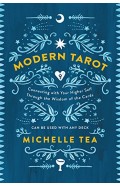







-120x187.jpg?q6)


-120x187.jpg?q6)
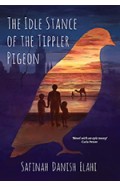
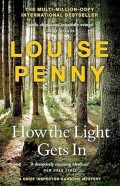

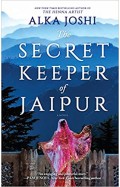












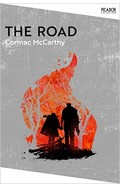

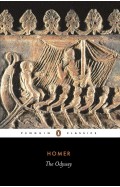




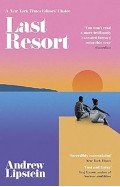
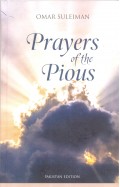

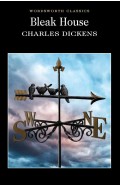

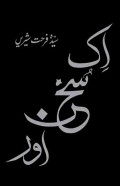




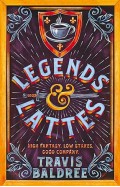
-Paperback-120x187.jpg?q6)



